Few career arcs in modern history can be as remarkable as that of Ahmed Hussein al-Sharaa – or Abu Mohammed al-Jolani, to give him the nom de guerre under which he fought American troops in Iraq back when he was a firebrand member of al-Qaeda. Twenty years ago al-Sharaa was languishing in a US military prison in Baghdad, held on suspicion of terrorism. Today, as Syria’s new interim President, he shook hands with Donald Trump posing for photo-calls alongside the de-facto ruler of Saudi Arabia Mohammad bin Salman.
Trump was evidently impressed by al-Sharaa, who has swapped the turban and dusty fatigues that he habitually wore before taking Damascus by storm last winter for a plain blue suit and purple tie. “He’s a young attractive guy. Strong past, very strong past – fighter,” Trump told reporters on Air Force One after the meeting in Riyadh. “He’s got a real shot at holding [Syria] together… It’s a torn-up country.”
Between the US-led invasion of Iraq in April 2003 and its withdrawal two decades later, some 4,300 American troops were killed by Iraqi insurgents and foreign volunteer fighters like al-Sharaa – along with between 112,000 to 210,000 civilians. As the chaos in Iraq wound down in 2011 al-Sharaa was released after a five-year stint in an American-run prison camp and returned to Syria, where he had grown up and attended two years of medical school before joining the jihad. But his career as a pyrotechnician of civil war and mayhem was just getting started as the Arab Spring insurgency against the Assad regime kicked off with a nationwide uprising. Al-Sharaa – very much neither reformed nor chastened by his time in US custody – traveled to Damascus with bags full of cash as the lieutenant of Islamic State founder Abu Bakr al-Baghdadi. His mission was to found the Syrian branch of ISIS, squeeze out the moderate anti-Assad opposition and turn the resistance into a jihad.
Al-Sharaa, it seems, is a hard man to kill. He survived multiple air raids by the US, British and Russian forces, backed by occasional covert special forces operations. Breaking away from ISIS, he became the Emir of the al-Nusra Front and later created another al-Qaeda splinter group called Hayat Tahrir al-Sham, or HTS. After the destruction of the ISIS stronghold of Raqqa in 2017, HTS fighters created a mini-state on a pocket of land in Idlib province near the Turkish border. And in the kaleidoscope of shifting factional politics, HTS also found a new protector in the form of the Turkish military. And it was with the backing of Turkey’s strongman President Recep Tayyip Erdoğan that al-Sharaa led his fighters in a surprise assault first on Aleppo and then Damascus last year. Assad’s forces, and his regime, collapsed like a house of cards.
Today al-Sharaa is trying to project a new image – not as a jihadi terrorist but a tolerant leader of a multinational, multi-confessional Syria. “In the future Syria, we believe that diversity is our strength, not a weakness,” read one of Jolani/al-Sharaa’s early edicts on taking control of Aleppo in December 2024. His fighters swapped the black banner of the al-Nusra Front for the old flag of the Syrian Republic that dated back to before the 1963 Baath party revolution that brought the Assads to power. Nonetheless, HTS remained on the US terror list – and al-Sharaa personally had a $10 million bounty on his head until it was quietly removed in the first weeks of his de-facto leadership of Syria.
Is it appalling cynicism or sensible pragmatism for Trump to shake a hand that is figuratively, and possibly literally, stained with Americans’ blood? History is full of examples of respectable world leaders doing deals with the twentieth century’s most notorious devils. Nixon and Mao met on cordial diplomatic terms, as did Churchill and Stalin, Valéry Giscard d’Estaing and the Emperor Jean-Bedel Bokassa, Yizhak Rabin and Yassir Arafat. Even Britain’s long-suffering late Majesty the Queen was obliged by various of her prime ministers to extend full state welcome to both Bashir-al Assad and Vladimir Putin – as well as to shake hands with former IRA terrorist Martin McGuinness.
Trump is undoubtedly taking his lead from Erdoğan, who sponsored al-Sharaa’s power grab and who is clearly banking on his protegé to bring a semblance of stability to war-ravaged Syria. “I spoke with President Erdoğan, who is very friendly with [al-Sharaa],” Trump told the press. Erdoğan “feels he’s got a shot of doing a good job.”
Indeed the context of the Riyadh meeting was to push through a rapprochement between Damascus and Jerusalem that is part of a long-term Saudi strategy to isolate its arch-nemesis, Iran, and cut off its regional tries to Hezbollah in Lebanon and Hamas in Gaza. Trump, the Saudis, the Turks and the Israelis are all pushing al-Sharaa to sign the Abraham Accords – a US-led initiative which aims to normalize relations between Israel and Arab nations. Part of that deal will be to force “all foreign terrorists to leave Syria,” according to White House press secretary Karoline Leavitt. Which is of course ironic as those foreign terrorists – including the murderous British fanatics known as the Beatles who cold-bloodedly murdered US and British hostages – were until recently al-Sharaa’s comrades-in-arms in ISIS.
Peace makes for strange bedfellows – and nowhere more so than in the Middle East. Al-Sharaa’s claims to have been reborn as a tolerant democratic leader were shaken in March by a series of massacres of up to 1,500 Alawites, a heterodox brand of Shiite Islam followed by the now-exiled Assad family. Al-Sharaa condemned the violence and blamed it on pro-Assad groups. “We won’t accept that any blood be shed unjustly, or goes without punishment or accountability, even among those closest to us,” he said.
Trump was shaking hands with a future peaceful leader of a post-war Syria, rather than the former terrorist and possible murderer of Americans. Or to put it another way, he put political pragmatism before gesture politics. Perhaps some time soon he will do the same with Vladimir Putin.



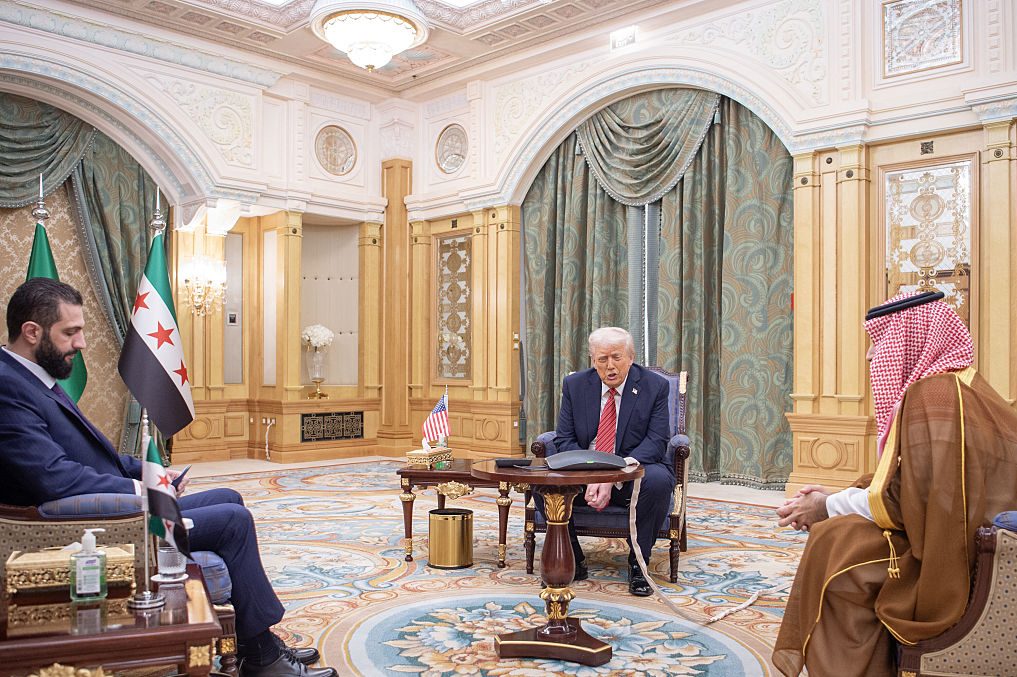






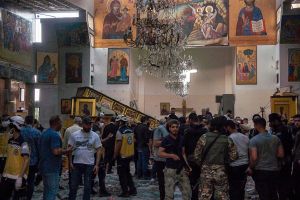
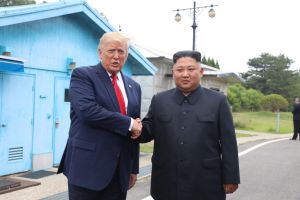
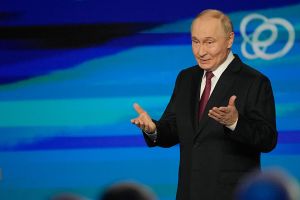
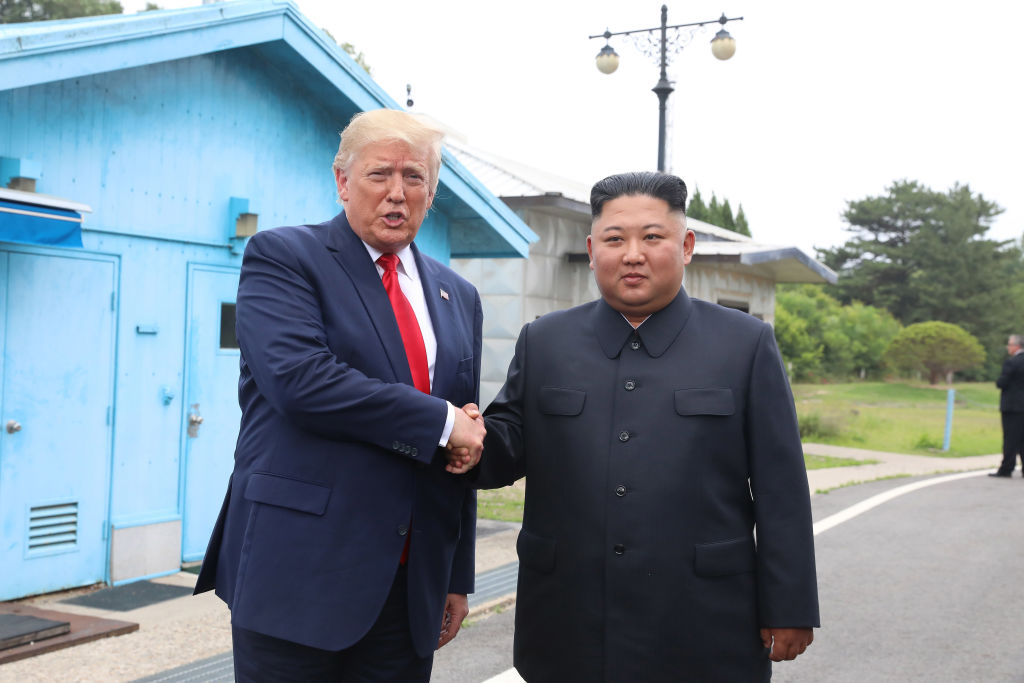
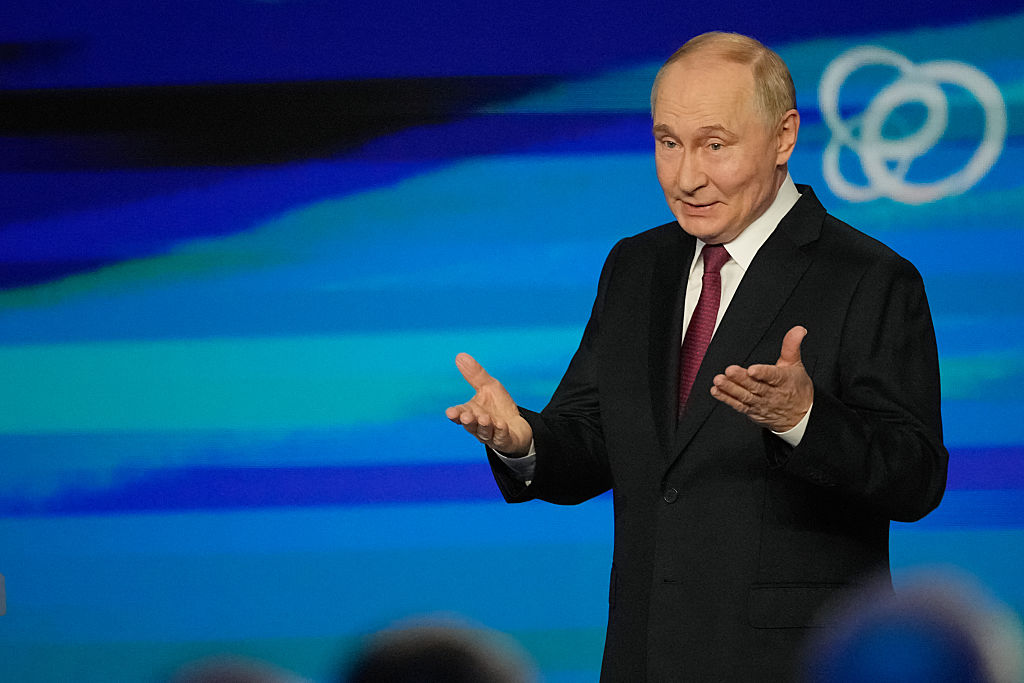
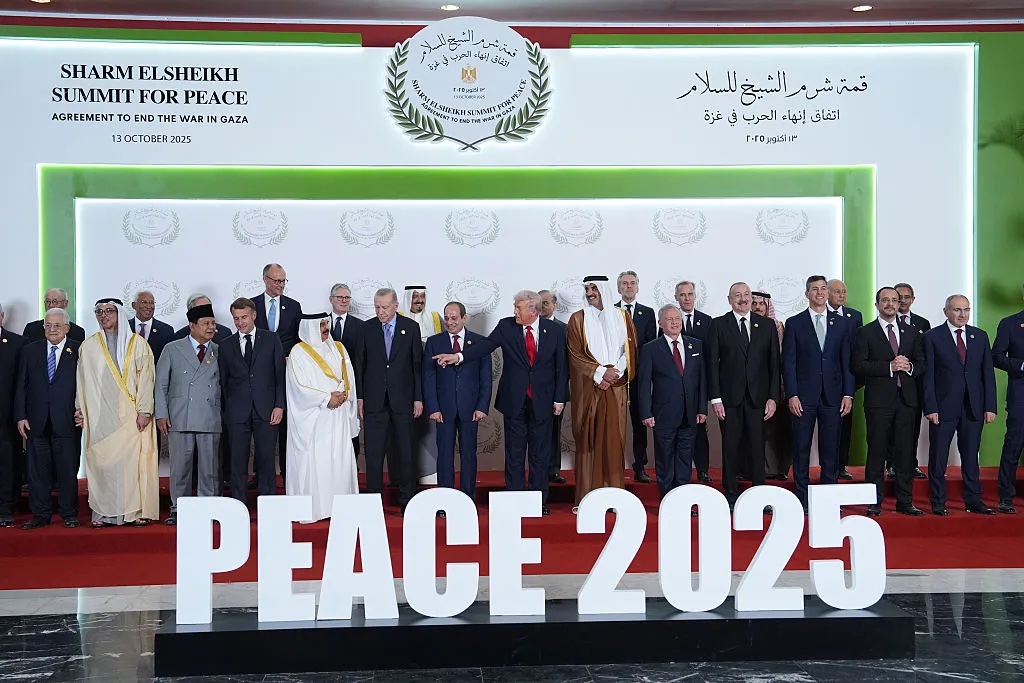

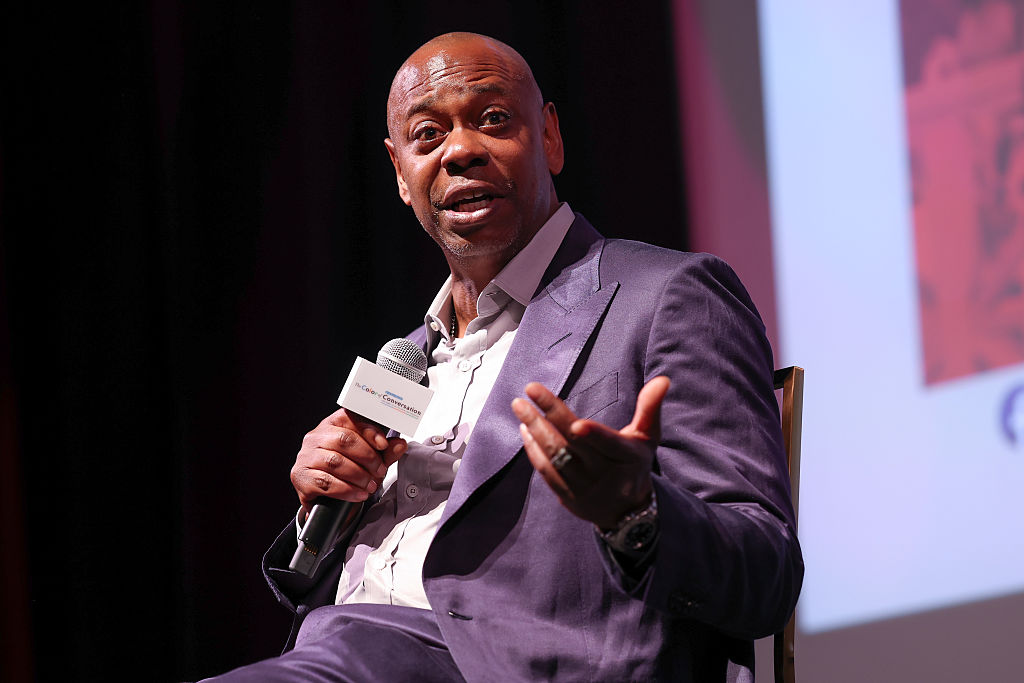
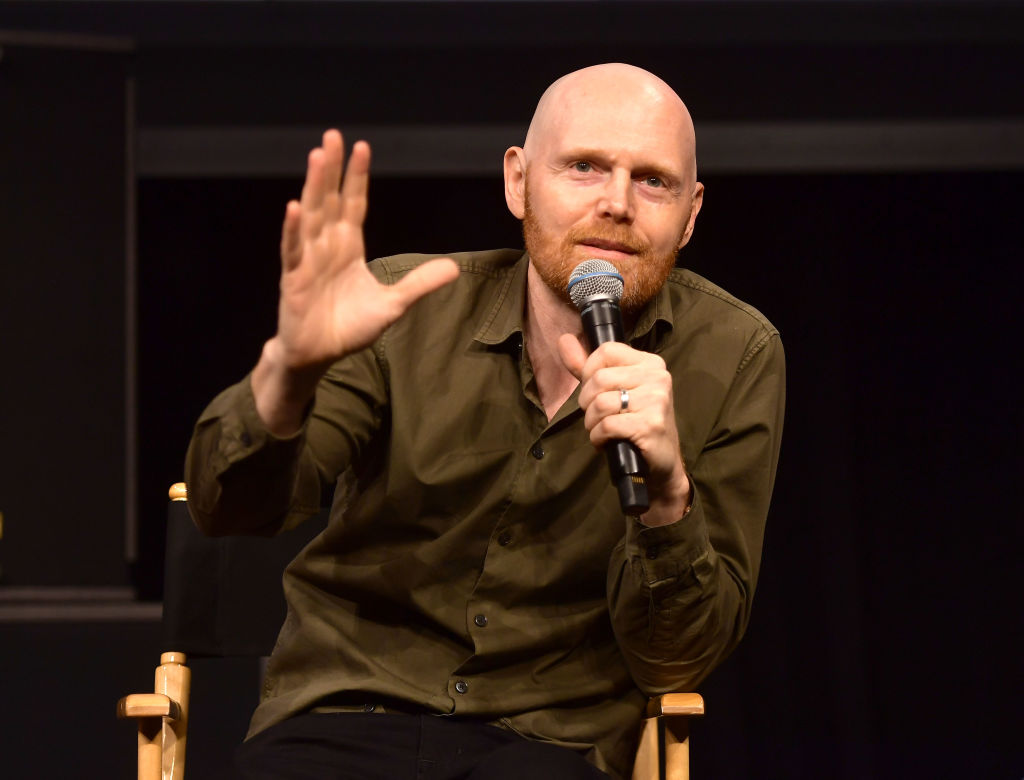







Leave a Reply